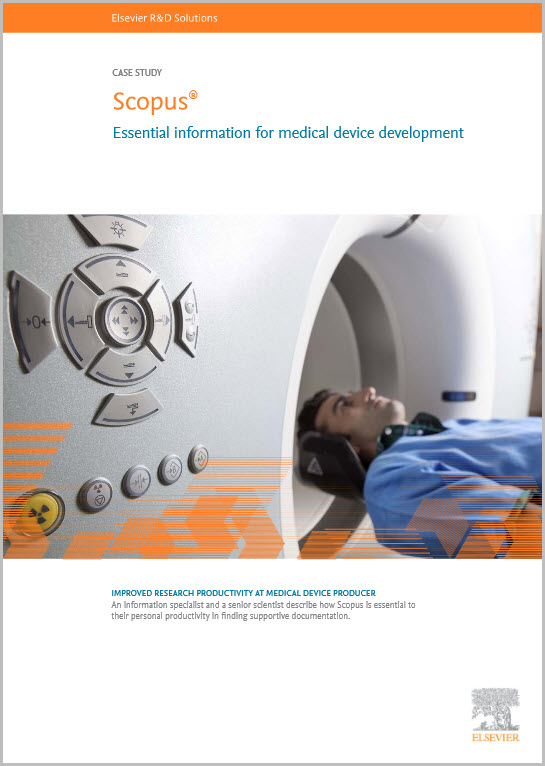Case Study: Scopus improves productivity with better supportive documentation
Scopus remains the solution of preference for researchers across all types of research institutions—academic, corporate, governmental. In this case study an information specialist and a senior scientist describe how Scopus is essential to their personal productivity in finding supportive documentation.
The company that shared this with us provides high-quality biomarker-testing solutions for the diagnosis of critically ill patients. Compliance is key, as is the ever influential market factor of user-convenience. The company’s goal is to simplify the way they do things, so that their customers can do the same.
Scopus has been fully integrated into their working practices, fostering a collaborative environment for its R&D teams so that they can improve the way things are done within the company—ultimately helping their customers do the same. The information specialist in particular appreciates Scopus' ability to “help us get a clearer overview of the problems, and then focus on paths to explore to develop solutions”.
Three groups: R&D, applied science and marketing are all dependent on Scopus—using the information it provides to guide their work on product development. Information on applications, new technologies that could improve devices, potential areas of new sales and insights on existing customers are some of the varied searches that Scopus helps with. Across the three groups, researchers conduct simple searches themselves. For more complex requests, the information manager builds complex searches—helping the researcher by defining the problem to be addressed with a set of abstracts and assisting with the interpretation of results through more sophisticated identified keyword searches and following citation trails. As a result of Scopus, she says that her productivity has increased by “30–40% since we’ve had Scopus”.


